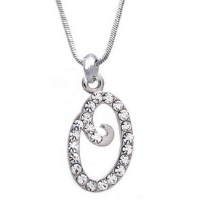Content
- The Non-Deliverable Forward Market
- Why Should A Broker Offer NDF Trading?
- BofA study shows increasing electronic trading of derivatives as users embrace MDPs and APIs
- How NDFs Contribute to Global Currency Markets
- Capital Markets & Securities Analyst (CMSA®) Certification
- VITARA Reference Guide: Human Resource Management
- Synthetic Foreign Currency Loans
Schmittman and Teng said that spill-overs from non-deliverable forwards NDFs to onshore markets are a policymaker concern, as exchange rate management could be less effective and the ability to conduct an independent monetary policy is crippled. The launch of NDF Matching brings together the benefits of an NDF central limit order book and clearing to offer a unique solution for the global foreign exchange market. Benefit from counterparty diversity and reduced complexity as you execute your NDF foreign exchange requirements. Any investment products are intended for experienced investors and you should be aware that the value of your investment may go down as well as up.
The Non-Deliverable Forward Market
NDFs are customizable, offering leverage and flexibility to suit different needs and preferences. Bound specialises in currency risk management and provide forward and option trades to businesses that are exposed to currency risk. As well as providing the actual means by which businesses can protect themselves from currency risk, Bound also publish articles like this which are intended to make currency risk management easier to understand. When the time comes, they simply trade at the spot rate instead and benefit by doing so. What happens is that eventually, the two parties settle the difference between a contracted NDF price and the future spot rate for an exchange that takes place in the future. The basis of the fixing varies from currency to currency, but can be either an official exchange rate https://www.xcritical.com/ set by the country’s central bank or other authority, or an average of interbank prices at a specified time.
Why Should A Broker Offer NDF Trading?
NDFs are primarily used for hedging or speculating in currencies with trade restrictions, such as China’s yuan or India’s rupee. Consider a scenario where a borrower seeks a loan in dollars but wishes to repay in euros. The borrower acquires the loan in dollars, and while the repayment amount is determined in dollars, the actual payment is made in euros based on the prevailing exchange rate during repayment. Concurrently, the lender, aiming to disburse and receive repayments in dollars, enters into an NDF agreement with a counterparty, such as one in the Chicago market. This agreement aligns with the cash flows from the foreign currency repayments.
BofA study shows increasing electronic trading of derivatives as users embrace MDPs and APIs
- Instead, two parties ultimately agree to settle any difference that arises in a transaction caused by a change to the exchange rate that happens between a certain time and a time in the future.
- The exchange rate is calculated according to the forward rate, which can be thought of as the current spot rate adjusted to a future date.
- The contract has FX delta and interest rate risk in pay and receive currencies until the maturity date.
- The products available are leveraged foreign exchanges, precious metals and energies, global stock indices, among others.
In contrast, Malaysia authorities limit Malaysian Ringgit NDF trading while taking measures to deepen onshore foreign exchange markets. In the intricate landscape of financial instruments, NDFs emerge as a potent tool, offering distinct advantages for investors. They safeguard against currency volatility in markets with non-convertible or restricted currencies and present a streamlined cash-settlement process. For brokerages, integrating NDFs into their asset portfolio can significantly enhance their market positioning. By offering this specialised instrument, brokerages can reach a broader and more sophisticated client base, boosting their presence in the competitive financial arena and promoting diversification. The settlement date, the agreed-upon date for the monetary settlement, is a crucial part of the NDF contract.
How NDFs Contribute to Global Currency Markets
A non-deliverable forward (NDF) is a forward or futures contract in which the two parties settle the difference between the contracted NDF price and the prevailing spot market price at the end of the agreement. The expansion allows clients to use effective hedging tools for trading OTC derivatives contracts and leverage products in line with regulations in respective countries. The products available are leveraged foreign exchanges, precious metals and energies, global stock indices, among others. NDFs, by their very nature, are the most valuable to markets where traditional currency trading is restricted or impractical. This creates a niche yet significant demand, allowing brokers to capitalise on the spread between the NDF and the prevailing spot market rate.
Capital Markets & Securities Analyst (CMSA®) Certification
The exchange’s financial outcome, whether profit or loss, is anchored to a notional amount. A non-deliverable forward (NDF) is usually executed offshore, meaning outside the home market of the illiquid or untraded currency. For example, if a country’s currency is restricted from moving offshore, it won’t be possible to settle the transaction in that currency with someone outside the restricted country. However, the two parties can settle the NDF by converting all profits and losses on the contract to a freely traded currency.
VITARA Reference Guide: Human Resource Management
The British pound and Swiss franc are also utilised on the NDF market, albeit to a lesser extent. Option contracts are offered by Smart Currency Options Limited (SCOL) on an execution-only basis. This means that you must decide if you wish to obtain such a contract, and SCOL will not offer you advice about these contracts.
Synthetic Foreign Currency Loans
BNP Paribas’ non-deliverable forwards (NDF) offering for Brazilian Real (BRL) is the latest example of innovation in the market. There are various alternatives when it comes to finding protection from currency risk to normal forward trades and non-deliverable forward trades. Following on from this, a date is set as a ‘fixing date’ and this is the date on which the settlement amount is calculated.
Trade credit behavior of Korean small and medium sized enterprises during the 1997 financial crisis
An NDF is a financial contract that allows parties to lock in a currency exchange rate, with the rate difference settled in cash upon maturity rather than exchanging the currencies. NDFs hedge against currency risks in markets with non-convertible or restricted currencies, settling rate differences in cash. For those seeking liquidity in NDFs, it’s essential to turn to specialised financial service providers and platforms that fit this niche market.
Any changes in exchange rates and interest rates may have an adverse effect on the value, price or structure of these instruments. Usually, the forward trade provider will act as a third party in the exchange, handling the transfer of money between the business and the counterparty which is making the payment to them. They have given firms the ability to hedge foreign exchange risk in currencies that were once unavailable to them.
As clients become confident using these algos, demand for BRL contracts has steadily increased. Whilst the journey of NDF algos started in Asia, with BNP Paribas offering IDR, INR, KRW, PHP & TWD, the bank has now expanded its offering to include one of the first BRL algos on the market. BNP Paribas recently introduced its first NDF algo for Asian currencies, adapting its existing algos to manage the nuances of the NDF market and giving clients the ability to automatically trade large NDF contracts. The bank has seen over $17bn of NDFs executed via algo since launching its NDF suite.
If the rate increased to 7.1, the yuan has decreased in value (U.S. dollar increase), so the party who bought U.S. dollars is owed money. The People’s Bank of China controls the level of Renminbi (RMB) and offshore access. The NDF markets in many Asian emerging market currencies are large, rapidly growing, and often exceed onshore markets in transaction volume, an International Monetary Fund working paper published in September last year showed. Where HSBC Innovation Banking markets any foreign exchange (FX) products, it does so a distributor of such products, acting as agent for HSBC UK Bank plc and/or HSBC Bank plc. Because NDFs are traded privately, they are part of the over-the-counter (OTC) market. It allows for more flexibility with terms, and because all terms must be agreed upon by both parties, the end result of an NDF is generally favorable to all.
All testimonials, reviews, opinions or case studies presented on our website may not be indicative of all customers. Yarilet Perez is an experienced multimedia journalist and fact-checker with a Master of Science in Journalism. She has worked in multiple cities covering breaking news, politics, education, and more. You can adjust your preferences at any time through the preference link in any electronic communication that you receive from us. Upgrading to a paid membership gives you access to our extensive collection of plug-and-play Templates designed to power your performance—as well as CFI’s full course catalog and accredited Certification Programs.
Banks, however, have overcome this challenge with the deployment of NDF algos helping to automate execution and optimise costs. If one party agrees to buy Chinese yuan (sell dollars), and the other agrees to buy U.S. dollars (sell yuan), then there is potential for a non-deliverable forward between the two parties. This fixing is a standard market rate set on the fixing date, which in the case of most currencies is two days before the forward value date. Daily data from January 19, 1999 to November 4, 2003 for the NDF rates with the U.S. dollar are obtained from Bloomberg for various maturities of the NDF, and the spot data are from Pacific Exchange Rate Service. Policy approaches to NDFs also vary widely across Asia, ranging from close integration with onshore markets to severe restrictions on NDF trading. FXall is the flexible electronic trading platform that delivers choice, agility, efficiency and confidence that traders want, across liquidity access to straight-through processing.
A crucial point is that the company in question does not lose money as a result of an unfavourable change to the exchange rate. Non-deliverable forwards can be used where it is not actually possible to carry out a physical exchange of currencies in the same way as normal forward trade. Non-deliverable forward trades can be thought of as an alternative to a normal currency forward trade. Whereas with a normal currency forward trade an amount of currency on which the deal is based is actually exchanged, this amount is not actually exchanged in an NDF. While liquidity has traditionally remained low in this market, BNP Paribas’ local presence in Brazil has allowed the bank to tap into the richest source of on-shore liquidity on the Brazilian Mercantile & Futures Exchange (BM&F).
A more diverse range of participants will change the liquidity profile and have a positive impact on the market, benefiting not just our customers but the market as a whole. NDF/NDSs are primarily used to hedge non-convertible currencies or currencies with trading restrictions. With respect to pricing, the theoretical price is still determined bythe forward points which are derived by the relative interest rates to term of the contract. You can either specify both notionals in pay and receive currency; or specify one of the notionals, and the strike rate (also called forward rate), in which case you multiply one notional by the strike to get the other notional.
These platforms and providers offer the necessary infrastructure, tools, and expertise to facilitate NDF trading, ensuring that traders and institutions can effectively manage their currency risks in emerging markets. NDFs gained massive popularity during the 1990s among businesses seeking a hedging mechanism against low-liquidity currencies. For instance, a company importing goods from a country with currency restrictions could use NDFs to lock in a favourable exchange rate, mitigating potential foreign exchange risk. The article will highlight the key characteristics of a Non-Deliverable Forward (NDF) and discuss its advantages as an investment vehicle. Much like a Forward Contract, a Non-Deliverable Forward lets you lock in an exchange rate for a period of time.
They can be used by parties looking to hedge or expose themselves to a particular asset, but who are not interested in delivering or receiving the underlying product. Anna Yen, CFA is an investment writer with over two decades of professional finance and writing experience in roles within JPMorgan and UBS derivatives, asset management, crypto, and Family Money Map. She specializes in writing about investment topics ranging from traditional asset classes and derivatives to alternatives like cryptocurrency and real estate. Her work has been published on sites like Quicken and the crypto exchange Bybit. However, as electronic trading in NDF markets grows, they have become increasingly more complex and fragmented.






































